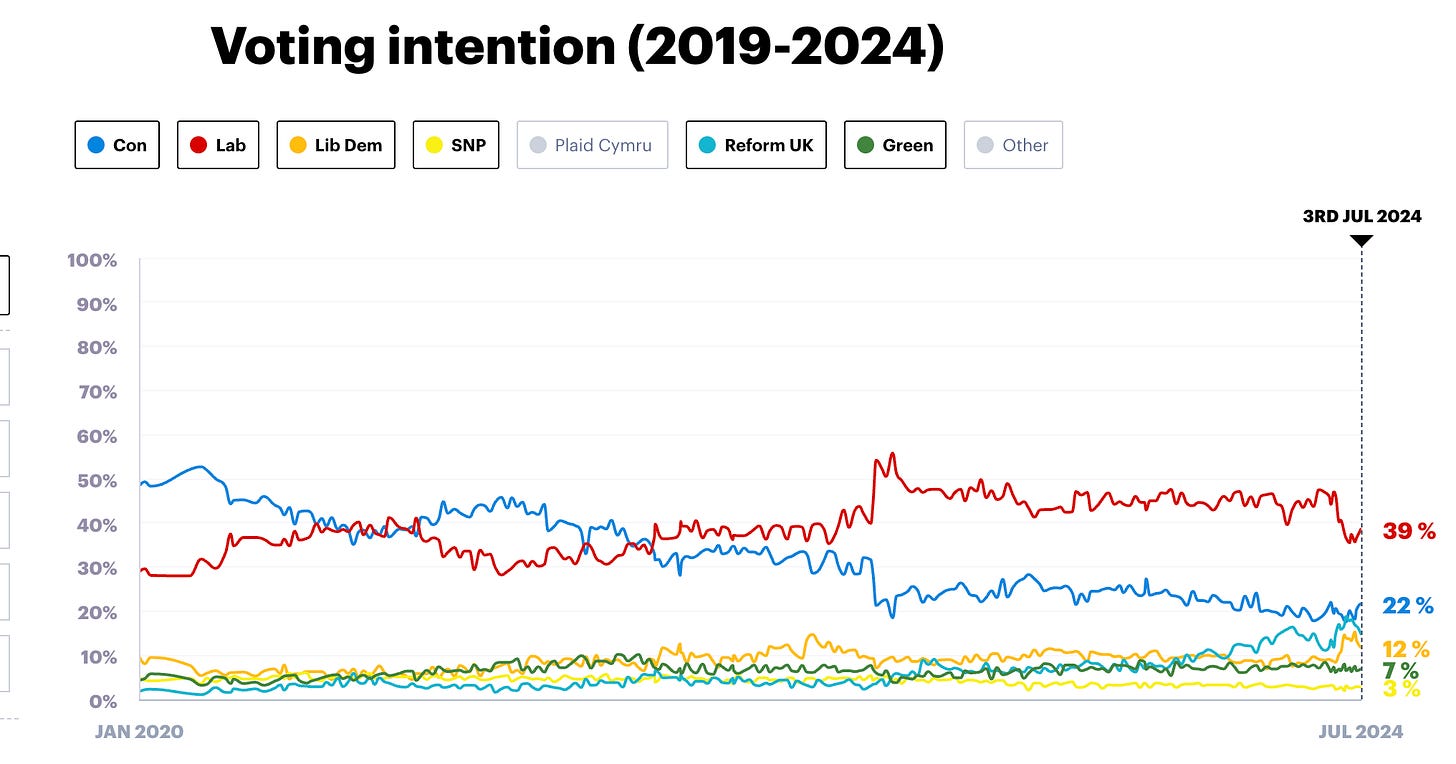Lies, damned lies and heuristics
The media must share blame for Labour's election tax pledges
It does not require vast reserves of political insight to understand why Labour felt compelled to rule out raising income tax, national insurance and VAT in its election manifesto: senior figures in the party simply did not believe they could win without making such a pledge. Of course, there is reason to be sceptical of this shibboleth.
Labour had enjoyed double-digit poll leads for almost two years, sparked by Liz Truss’ disastrous ‘mini-Budget’. Her successor, Rishi Sunak, was deeply unpopular. Such was the Tories’ acceptance of inevitable defeat that during the short campaign, their main attack line was largely warning against a so-called “super-majority”.
But for the sake of argument, let’s say Keir Starmer and Rachel Reeves’s instincts were broadly correct, and Labour could not have secured a majority without making its now infamous promise on tax. Here’s where things get tricky. Because, given the parlous state of the public finances, creaking public services and the UK economy’s anaemic growth, it should also not have been possible to win by making such a pledge either.
That they got away with it all the way to election day is in part the fault of another group: the media.
Panic a tax
During the election campaign, Labour figures repeatedly asserted that all specific spending promises would be paid for by specific (and frankly minor) tax rises, such as abolishing “non-dom” status and imposing VAT on private schools. Of course, recent events have shown this to be red hot nonsense. In her first Budget, Reeves levied £45bn in additional taxes. In her second, a further £26bn.
None of this should have been a surprise. Indeed, Paul Johnson, then director of the Institute for Fiscal Studies (IFS), tried to warn us. In his election manifesto analysis, Johnson accused the main parties of engaging in a “conspiracy of silence” about their tax and spending plans, stating:
Regardless of who takes office following the general election, they will – unless they get lucky – soon face a stark choice. Raise taxes by more than they have told us in their manifesto. Or implement cuts to some areas of spending. Or borrow more and be content for debt to rise for longer.
Specifically regarding Labour, Johnson warned:
Delivering genuine change will almost certainly also require putting actual resources on the table. And Labour’s manifesto offers no indication that there is a plan for where the money would come from to finance this.
It’s not that the media didn’t try. Sky News’ Beth Rigby put the IFS criticisms directly to Starmer, who simply replied:
“I understand why so far in this campaign, what’s being put to us is ‘are you either going to tax more or spend less?’ But I’m rejecting that that is the only argument, so this manifesto is a total rejection of that argument. We’re going for growth.”
Alright then.
A pox on all your spending plans
Labour may reasonably point out that the Conservatives were little better. At the beginning of 2024, Richard Hughes, chair of the Office for Budget Responsibility, suggested that calling the then government’s spending plans a “work of fiction” was in fact generous, because “someone has bothered to write a work of fiction whereas the government has not even bothered to write down what its departmental spending plans are.”
Keep reading with a 7-day free trial
Subscribe to Lines To Take to keep reading this post and get 7 days of free access to the full post archives.




